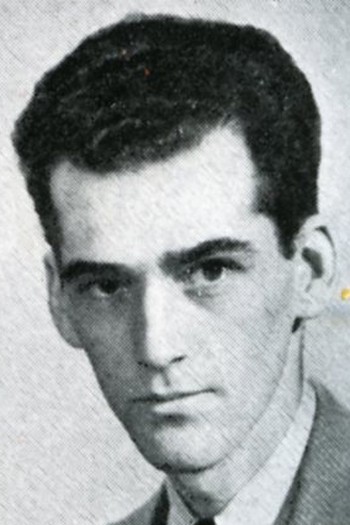Roll of Honor
Home | About | Campus Tour | Help Us
George Kydd Cuthbert, Jr.
- School: Columbia College
- Class Year: 1943
- War: World War II
- Date of Death: April 18, 1945
Sergeant George Kydd Cuthbert Jr., U.S. Army, died April 18, 1945, and is buried in the Long Island National Cemetery in Farmingdale, New York.

Tributes
My father, Edward J. Karlewicz, was also a member of the 741st Tank Battalion. He was in Leipzig when Sgt. Cuthbert's tank was destroyed and remembered the sickening message on the radio that the tank had been hit and destoyed by a bazooka. My dad knew Sgt. Cuthbert and each of the crew, especially two soldiers that had served in the same tank with him for the previous four months and had just been assigned to this destroyed tank the previous day. Like my father, Sgt. Cuthbert was from New York City, and my dad visited his heart stricken family after the war to tell them how sorry he was and to tell them what he remembered about him. He was an outstanding, intelligent, brave and patriotic man whom my father was honored to know. My father described to me the sad and melancholy feeling that fell on his unit as they gathered at nightfall and recalled this tragic event. The war was so close to being over for them but for some fanatic with a bazooka. "Yet to die a hero's death in the service of a great crusade for freedom is no small thing. For death is certain for each of us and to die in the service of your country ennobles all of us."-Edward J. Karlewicz. My Dad later wrote an essay entitled "Death in Leipzig." If any members of Sgt. Cuthbert's family would like to read it, please contact me at kquill98@verizon.net.
- Karen Quill
This is something my father, Edward J. Karlewicz wrote on January 19, 2001 which he entitled "Death in Leipzig." It happened two scores and seventeen years ago and yet its memory haunts me still. It was early in the morning in springtime 1945 as we approached the outskirts of Leipzig and shelled some abandoned houses with our tank cannon. We then proceeded into the city streets, which were similar to streets I remember in New York City. People in Leipzig were jubilant that we came instead of the Russians and showered us with flowers. We continued through the streets until we came to a canal and commenced firing our canon and machine guns across the canal. Suddenly, we heard a sickening message on the radio that one of our tanks was hit and destroyed by a bazooka, killing all five of its crew. I remember each of them, especially two who served with me in the same tank for the previous four months and had just been assigned to this destroyed tank the previous day. The other three were recent replacements, one of which had volunteered to join us from the Stars and Stripes Newspaper staff. He was from New York City as was I and I visited his heart stricken family after I was discharged to tell them how sorry I was and to tell them what I remembered about him. He was an outstanding, intelligent, brave and patriotic man who I was honored to know. I often think what an ironic and sad thing it is that he and the other men died so close to the end of the war. At the time, we knew that the war was drawing close to the end and a sad and melancholy feeling fell on our unit as we gathered at nightfall and recalled this tragic event. So close to being over but for some fanatic with a bazooka. At times I feel a tightness in my spirit and a wonder in my heart that by some powers beyond my comprehension I have lived these many years after Leipzig and yet to die a hero’s death in the service of a great crusade for freedom is no small thing. For death is certain for each of us and to die in the service of your country ennobles all of us.
- Karen Quill
Is any of our information incorrect? You can submit corrections, additional photos, and/or tributes to uarchives@columbia.edu.
